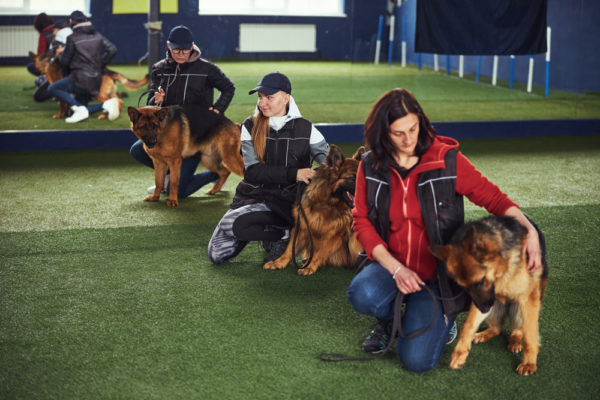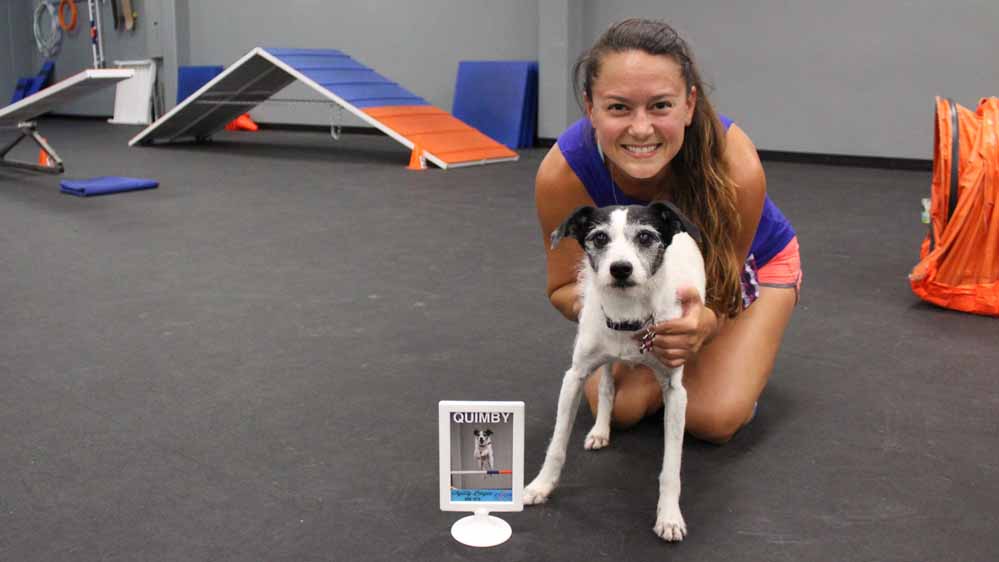Leading Dog Training Strategies for Every Phase of Your Dog's Life
Efficient pet dog training is crucial at every phase of a pet dog's life, as each stage provides one-of-a-kind obstacles and possibilities for growth. It is essential to recognize that training ought to develop alongside a canine's development, making sure that techniques stay efficient and relevant.
Puppy Educating Basics
Puppy training fundamentals prepared for a well-behaved adult dog and involve numerous crucial components that must not be forgotten. The preliminary phase of training concentrates on developing a solid bond in between the puppy and its proprietor, which is essential for effective communication. Socializing is vital; exposing pups to various settings, people, and various other animals helps them develop self-confidence and flexibility, minimizing the probability of behavior issues later on in life.
Fundamental commands, such as rest, remain, and come, form the structure of obedience training. Using favorable support techniques, such as deals with and praise, urges preferred habits and cultivates a positive understanding experience. Uniformity in commands and training sessions is important, as pups flourish on regular and structure.
Furthermore, house training is an important aspect of puppy training. Developing a regular timetable for restroom breaks and making use of assigned locations can help lessen crashes and advertise good behaviors. In general, a well-shaped technique to puppy training, integrating obedience, house, and socialization training, establishes the stage for a well-adjusted adult pet, making sure an unified partnership between the animal and its proprietor.
Adolescent Behavior Management
As young puppies mature right into teens, their actions can change substantially, typically offering brand-new obstacles for owners. This developmental stage, generally happening between six months and 2 years, is noted by enhanced power degrees, curiosity, and a blossoming sense of self-reliance. Recognizing these changes is vital for reliable actions monitoring.
Teens might display rebellious tendencies, such as disregarding commands they previously understood or taking part in destructive actions. Uniformity in training stays critical; strengthening learned behaviors via positive reinforcement can aid combat these difficulties. Short, appealing training sessions are important to preserve their interest and emphasis.

In addition, developing a structured regimen can significantly enhance a teen canine's feeling of protection. Regular exercise is vital to carry their energy positively, minimizing the probability of unfavorable habits. By utilizing these methods, proprietors can efficiently browse the complexities of adolescent behavior, fostering a well-adjusted, pleased canine buddy.
Adult Dog Obedience Methods

Positive reinforcement continues to be a key strategy; gratifying etiquette with treats, appreciation, or play encourages conformity. Consistency is vital; the very same commands and rewards ought to be used by all relative to prevent complication.
Including training right into everyday regimens can likewise work. For example, method commands throughout strolls or meal times, permitting training to blend perfectly right into daily life. Involving in organized activities, like agility training courses or obedience classes, can further enhance a dog's skills while offering useful socialization chances.
It is necessary to acknowledge that grown-up pets might likewise display stubbornness or complacency. Adjusting training methods to preserve their rate of interest, such as varying rewards or presenting new commands, can assist endure motivation. Generally, visit their website a continuous dedication to obedience training will certainly promote a well-behaved and balanced grown-up canine.
Senior Pet Adjustment Approaches
Identifying the special requirements of senior pets is important for ensuring their convenience and wellness. As dogs age, they might experience a decline in wheelchair, vision, and cognitive function, requiring customized adaptation approaches.
First, official statement think about modifying the living setting. Guarantee that the home is accessible and risk-free; remove obstacles and provide non-slip surface areas to avoid drops. Additionally, consider making use of actions or ramps to assist them access their favored areas.
Secondly, workout should be readjusted to account for reduced endurance and joint health (Dog Training For Dogs). Participate in shorter, a lot more frequent strolls, and incorporate mild activities like swimming, which can be helpful for arthritic joints
Additionally, psychological stimulation stays crucial. Usage basic puzzle toys or involve in scent job to maintain their minds sharp, while avoiding frustrating jobs that may annoy them.
Last but not least, regular veterinary examinations are important to check health modifications and change treatment regimens accordingly. By carrying out these adjustment methods, you can boost the top quality of life for your senior pet dog, guaranteeing they age with dignity and easily.
Lifelong Discovering and Enrichment
While canines of every ages gain from discovering and mental stimulation, lifelong enrichment is especially crucial for preserving cognitive health and wellness and emotional health in both senior and more youthful pets. Involving tasks not only enhance a canine's quality of life but additionally reinforce the bond between the dog and its next page proprietor.
Enrichment can take different types, including interactive toys, challenge feeders, and scent job, which boost a pet dog's detects and urge analytical. Normal training sessions, integrating new commands or methods, maintains their minds sharp and advertises a sense of accomplishment. Socializing with various other canines and people is just as crucial, as it helps stop behavioral issues and cultivates versatility.
Moreover, including workout into a pet's routine is necessary for general health. Tasks like agility training, bring, or long walks offer both physical and psychological stimulation, ensuring pet dogs remain happy and involved.
Lastly, think about varying the environment by presenting new places for playdates or walks. This change can reignite a pet's interest and excitement for exploration. Lifelong learning and enrichment not just contribute to a meeting life but additionally promote a harmonious relationship with your canine companion.
Verdict
Efficient canine training techniques advance throughout a canine's life, addressing the one-of-a-kind needs of each developing phase. From developing fundamental skills in young puppies to handling teenage behaviors, reinforcing obedience in adults, and adapting approaches for seniors, a detailed strategy makes sure optimal communication and habits. Highlighting normal psychological stimulation, socialization, and physical exercise promotes a well balanced and meeting life for pet dogs. Eventually, constant application of these methods adds to an unified connection in between pet dogs and their human friends.
Reliable pet training is crucial at every phase of a pet's life, as each stage provides special difficulties and chances for growth.Puppy training essentials lay the groundwork for a well-behaved grown-up pet dog and include several essential elements that ought to not be neglected. Overall, an all-around method to puppy training, incorporating obedience, socializing, and home training, sets the stage for a well-adjusted grown-up canine, ensuring an unified connection between the pet dog and its owner.
Numerous canine owners might find that grown-up pets, while usually more secure in habits than their adolescent counterparts, still need consistent training to keep obedience and good manners.Reliable canine training techniques develop throughout a pet's life, attending to the unique demands of each developmental stage.